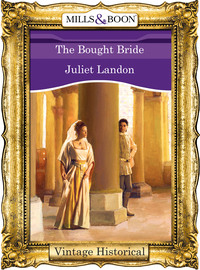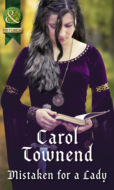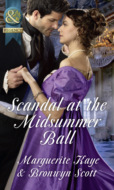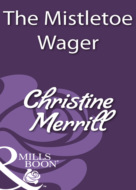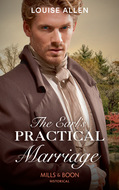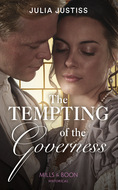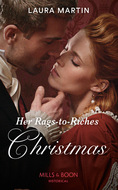Kitap dosya olarak indirilemez ancak uygulamamız üzerinden veya online olarak web sitemizden okunabilir.
Kitabı oku: «The Bought Bride»
She was to be married at the King’s discretion.
Rhoese was vulnerable, exquisitely beautiful, tempestuous, yet with a hint of fear, and not quite as ice-cold as she would like people to think.
Until now, Jude had only toyed with thoughts of marriage. The possibility of taking an Englishwoman to his bed permanently had never been more than a passing thought during his eight years in England. Until now.
This one presented more than a challenge….
Praise for Juliet Landon
The Knight’s Conquest
“A feisty heroine, heroic knight, an entertaining battle of wills and plenty of colorful history flavor this tale, making it a delightful one-night read.”
—Romantic Times
The Bought Bride
Juliet Landon

MILLS & BOON
Before you start reading, why not sign up?
Thank you for downloading this Mills & Boon book. If you want to hear about exclusive discounts, special offers and competitions, sign up to our email newsletter today!
Or simply visit
Mills & Boon emails are completely free to receive and you can unsubscribe at any time via the link in any email we send you.
Contents
Chapter One
Chapter Two
Chapter Three
Chapter Four
Chapter Five
Chapter Six
Chapter Seven
Chapter Eight
Chapter Nine
Chapter Ten
Epilogue
Chapter One
Michaelmas, September 29th, 1088—York
A sneaking cold wind whipped the light woollen shawl off Rhoese’s head to reveal a rippling helmet of auburn hair the colour of ripe chestnuts. She snatched the scarf and tied it briskly around her shoulders, trapping the two heavy plaits that reached to her waist. A halo of spiralling tendrils fluttered around her face. ‘One cart of timber from Gilbert of Newthorpe,’ she called to the scribbling clerk at her side. ‘Mark that down, Brother Alaric. Two cows worth twenty pence each from Robert, brother of Thorkil.’
‘Yes, yes,’ said the cleric. ‘Not too fast, my lady, if you please.’ With Robert’s goad to prod them, the cows were not inclined to wait in order.
‘Be quick, man. Master Ralph is here with his corn payment.’
Bundles of thatch, baskets of salted fish, live hens and fresh eggs, sesters of honey and rounds of cheese, sacks of malt and grain were carried into the fenced compound at Toft Green and accounted for by Lady Rhoese, her bailiff and her clerk. It was Michaelmas, a time for the payment of dues in her first year as a landowner in her own right. Men had been coming since early morning to hand over their shillings and pence as rent for ploughland, croft and meadow, for two mills and two town dwellings, all noted down on rolls of parchment that buckled beneath the cleric’s quill. Over his head, the canvas shelter began to flap and rattle with the first squall of rain.
‘How many more, m’lady?’ he said, throwing the quill down and taking another one from behind his ear.
Rhoese held back the wayward wisps of hair with one hand and strained her eyes towards the great stone archway where Micklegate passed through York’s city wall. The light was already fading and soon the gate would be closed for the night, though there were still stragglers who had walked all day to bring what they owed. A cart passed through, rattling and jolting behind two oxen, loaded high with sheep fleeces, and a party of riders surged behind, impatient and obviously in high spirits.
‘Who’s coming, Bran?’ she called to her bailiff at the gate.
‘They’re Normans, m’lady,’ he replied, frowning.
‘Close the gate after the cart. Quick,’ she ordered. Instinctively, she took a step backwards under the cover of the canvas shelter. The steady stream of wagons and animals passing along the track towards her demesne had attracted some heed, and several of the riders had stopped to watch the distant scene of organised chaos, their attention caught by bellowing steers and bleating ewes. Rhoese’s guess that the Norman party were huntsmen returning from a day’s sport would not be far wrong, with a spot of harmless trouble-making already in their minds. Damned Norman upstarts.
It was this unease, born of past experience, that kept her wary of what was happening beyond the stockade that surrounded her large compound, so that when two of the horsemen came as far as the gates to watch more closely, she backed even further into the shadowy recesses of the shelter. Since the last king’s great national survey of two years ago, the estates that she had inherited from her mother had gone largely unchallenged since, at the time, she was still living at home, the rents and dues from her estate merely augmenting those of her late father, a king’s thegn and wealthy merchant of York. Now, she was on her own, a target for property-seeking Normans, and vulnerable. One of the many risks of becoming independent.
Lowering her voice, she continued dictating to the cleric whilst trying to ignore the two inquisitive riders until some mysterious unseen force made her turn and look. One of them was watching the scene in the yard, but the other watched her, and only her. He was tall in the saddle and powerfully built, that much she could tell in one glance, not a man she had seen before in York, nor one she could have forgotten easily. His dark hair ruffled like thick silk in the stiff autumn breeze, and his eyes looked across at her like level daggers beneath straight black brows.
He saw her start, and beckoned to her, a signal she quickly decided that a servant would not ignore. Pretence was the answer. ‘My lord?’ she called, walking unhurriedly towards him. A sheep scuttled across, stopping her halfway.
‘Where’s your master?’ he called. His voice was abrupt and deep, used to command and to obedience, taking it for granted that she could speak French.
She shrugged. ‘Away, sir,’ she replied.
‘And your mistress? Where’s she?’
‘Away too.’
‘So who’s in charge here?’
Again she shrugged. ‘All of us. We’re trusted.’
‘Your name, girl?’
She took a deep breath, ready to lie. But the bailiff was not happy about the number of fleeces in the cart, and his loud query was meant directly for her. ‘Lady Rhoese,’ he called. ‘This load’s two short.’
A howl went up from the carter. ‘There ain’t, m’lady. They’re all there. Honest.’
The horseman dismounted and threw his reins to the man by his side, and Rhoese saw that he would be intent on an explanation. The deceit was already over, and she had not enjoyed even this short-lived attempt at subservience.
Defiantly, she faced him as he came towards her through the gate. ‘My name,’ she said, crisply, ‘is Lady Rhoese of York, daughter of the late Lord Gamal of York, and granddaughter of a former sheriff. Is that enough for you, or would you like me to quote my entire pedigree? I can, if you wish it, but I’m rather occupied, as you see.’
Lazily, he strode forward as if her defiance meant nothing to him, his hair lifting off his forehead like a thatch in a gale. ‘I’m sure you could. So why the deception, I wonder? Is that your way?’
‘Oh, with Normans, sir, I use any wiles I can devise to keep their noses out of my affairs.’
‘You appear to have strong opinions about Normans, my lady. What have they done to deserve it, I wonder?’
For some unaccountable reason, she felt her heart hammering and squeezing her breath from her lungs, further irritating her after she had sworn never again to be affected by a man. This man was standing within her compound as if he owned it, his great legs planted like trees, his hands splayed over slim hips where a gold-buckled belt sat low on a linen tunic with bands of blue and gold. Expensive attire. Unwillingly, she noticed his muscular neck, shoulders and chest like a wrestler, and she found herself doing what she knew men did when they looked at her, peeling him down to his skin to see what lay there. She realised she was blushing, and the smile in his eyes told her that he knew why.
‘As for that, sir,’ she said, lifting her chin, ‘if you don’t know the answer, then it’s clear you’ve not been in England long. It would take at least a week to tell you what damage you and your kind have done to us in the last twenty-two years. Fortunately, we still have our dignity and our language left. Those are two things you’ll never remove, thank heaven.’ She looked around for her bailiff and called to him in English. ‘Bran! Get this overweening lout from under my feet, will you?’ To the Norman, she spoke again in French. ‘As you see, sir, I’m too busy for small talk. Another day, perhaps. Pray excuse me.’
As she spoke, however, even her show of hostility was not enough to blind her to each detail of his face, the faint shadow round the strongly angled jaw, the firm wide line of the mouth, the dent in the chin and the long straight line of the nose. His high cheeks had already caught the shine of the rain, and the eyes that had been no more than dark slits were now widening at her brave animosity, deep brown, dark-lashed and unnervingly bold. She flinched, suddenly and inexplicably uncertain of herself, her eyes sliding reluctantly away to avoid reaching any more liberal conclusions about his remarkably good looks. A bitter voice breathed in her ear: he would be no different from the rest, Norman or English.
‘Yes,’ he said, ‘I can see you have much to do. Are you the owner of this demesne or is your husband joint owner?’
‘You ask too many questions, sir. And your friend is waiting.’
Her attempts to dislodge him made him smile. ‘Hmm.’ He grinned. ‘Another time then, lady. Perhaps you’ll be at the ceremony tomorrow, eh? As a tenant of the king, you’ll surely be there with your donation?’
His probing irritated her. ‘Oh, who knows how much curiosity value we English landowners have these days? We’re a dying breed. Why not show ourselves while we still have the chance? Is that what you mean? Good day, sir.’
He found no ready answer to that, but nodded curtly and strode away through the gate with a word to the bailiff who held it for him. Without another glance, he was back in the saddle and away at a canter, while Rhoese struggled to drag her mind unwillingly back to the pandemonium in the yard and to breathe past the uncomfortable knot of fear in her throat.
There was no doubt at all that she had overdone the antagonism for no reason except that he was a Norman. Or was there another reason, something too recent to be excused or explained? Something to do with men in general, those unreliable, feckless, self-seeking creatures? For the last ten months she had been reassessing her need of them, and now no other feelings remained except contempt and a wish for vengeance. Cold, hard, sweet revenge. Submission and humility she reserved only for special occasions when nothing else would do, having discovered to her cost how severely they were undervalued.
The cleric had stopped writing and was clearing away his tools before the rain spoiled his script. A bundle of rolls bounced about in the wind. ‘Who was that, my lady?’ he said, sticking his quills back into his hair.
‘I’ve no idea,’ she said. ‘He’ll not be back.’
Brother Alaric, the lady’s chaplain as well as her accounts clerk, was not a gambling man, but even he felt tempted to put some pence on the return of that admirer before the next sunset.
The two riders had passed the crofts of Toft Green before one of them smiled and glanced at his stony-faced companion. ‘You should see your expression,’ he grinned. ‘It’s a picture.’
‘All right. So tell me. Who is she?’
‘That, my fine friend, is one of York’s two remaining women landowners, and I cannot tell you of a single male who doesn’t long to get his hands on it. Yes—’ he laughed ‘—her and the property. Snapped your head off, did she? Well, she would. She’s been here in this corner of the city for the last ten months, since her father died, and she doesn’t let a man within a yard-length of her. Except her chaplain, of course. And her brother.’
‘Well, there could be several reasons for that. She’s the loveliest thing I’ve ever seen, Ranulf. Those great dark eyes spitting fire. That body.’ He sucked in his breath, recalling the thick auburn hair, the full mouth, the skin moist with rain that ought to have told him she was a lady, even without the usual head-covering. She was the stuff of men’s dreams and fantasies. ‘She tells me her father was Gamal. Who was Gamal, exactly?’
‘A king’s thegn. One of the last here in York. A wealthy merchant. Disappeared at sea last winter. Traded in furs and walrus ivory, mostly. His wharf is alongside the river by the bridge. Big warehouses and several ships.’
‘The business is still going, then?’
‘Yes, the trading was taken over by his assistant, a strapping young clever-dick called Warin. Not only the trading, either.’
‘Oh? What else?’
‘The widow. He moved into Lord Gamal’s house and settled in with the second wife. A shrew. Danish. Didn’t take her long to accept a bit of comfort. But the daughter, Lady Rhoese, moved out and set up on her own. Took her father’s death hard, apparently, and doesn’t want any more to do with the stepmother.’
‘Or the stepmother’s lover, who presumably gets his hands on more than the widow?’
‘Exactly. There may have been something between him and the daughter. We’re not sure.’
‘We?’
‘The court. The laugh is, Jude, that she believes that by keeping quiet and out of the way she’ll be quite safe.’
‘From what?’
‘Norman attention. Marriage, and the usual property take-over. It’s the only legal way a man can get at her estate, unless she sells it to him, of course, although plenty of women lost theirs illegally, as you know. But the idea of a woman holding an estate in her own name is ridiculous when she’s supposed to be rendering knight-service to the king for it. She’ll have to lose it eventually.’ The young man named Ranulf wiped the drips of rain off the end of his nose and looked down sadly at his soaking green woollen tunic. Even for the hunt, he liked to do his best to earn the nickname ‘Flambard’. Flamboyant was what he had always been, and even as the king’s chaplain there would be no sombre clothing for him at a court known for its extravagant dress.
‘So the king knows about her, does he?’
‘Most certainly he does. Since he saw that survey his late father did two years ago, he knows exactly who’s got what, where it is, how much it’s worth and how much revenue he can expect from it. He’s got her estate earmarked for whoever will pay him most to get their hands on it. Better start saving up if you want to put in a bid.’
‘Then he’ll marry her off?’
‘Just like that, whether she likes it or not. And she won’t.’
‘So she’ll lose everything.’
‘Everything.’ He pointed to a tall wooden fort on a mound beyond the thatched rooftops. ‘Over there, see? That’s one of the castles, and over there—’ his hand swung further to the left ‘—is the big castle. King William the Bastard had to dam the River Fosse to make the moat for it. The city people were not too happy about that.’ He laughed, thinking of the flooded houses and orchards.
But Jude was more interested in Lady Rhoese of York than in the two castles, which he had already seen on his way into the city. ‘Tell me more about her,’ he said.
The smile widened. ‘I can tell you that we took bets.’
‘On what?’
‘On how long it would take you to win her.’
Jude’s eyebrow lifted at that. ‘I see. And how long d’ye think we’ll have before the king returns to London? Do I have days, or will it be weeks?’
Ranulf patted his horse’s wet neck. ‘Well, we’ve got the St Mary’s Abbey ceremony tomorrow, and then the king will want to go hunting again.’
‘When does the king not want to go hunting?’ Jude murmured.
‘And I expect that two or three days later we shall return to London. That doesn’t give you much time, does it?’
‘Indecent haste, in the circumstances.’
‘Think you can do it?’
‘I intend to try. But I’ll want to know more than you’ve told me.’
‘Then you’d better know that the king has begun proceedings—’ he glanced behind him, lowering his voice ‘—to confiscate her late father’s estate.’ As keeper of the king’s seal, the young Ranulf Flambard was in a better position than most to know that.
Their manner became suddenly serious. ‘Now that,’ said Jude, ‘is not funny, is it?’
‘No, it certainly isn’t.’
‘Does the Lord Gamal’s widow know yet?’
‘No, but she soon will. The sparks will begin to fly when she finds out before the ceremony tomorrow. She’ll be prevented from donating to the new abbey. And, worse still, she’ll be thrown out of her house because the land it stands on will be part of the new abbey buildings.’
Rhoese called to the men, their hair now blackened with rain, who hurried to unload the carts and pen the animals. ‘Come inside to sup, when you’re ready.’ The storerooms were packed with foodstuffs and fleeces from the dales. ‘And bring the carters in too, Bran,’ she reminded him. ‘They’ll have to stay overnight.’
The great hall was quiet after the blustering wind, enclosing her and Brother Alaric like a warm blanket that smelt of wood smoke and the nourishing pottage that hung in a cauldron over the fire. Blue smoke swirled and hung in the wooden rafters before filtering out through the heavy thatch, and Rhoese’s glance swept possessively round the substantial space that was the men’s living, cooking, eating and sleeping quarters all in one. Her own small bower was situated apart, between two storehouses for more privacy, but here she was still mistress of the house. Here were stout timber pillars dividing the side aisles into curtained cubicles drawn back to reveal fur-covered benches that became the household’s beds each night. There was the daily food store at one end, and another door to the croft outside.
A woman stirred the pot over the burning logs within a circle of stones, looking up as her mistress entered, at once filling two wooden cups with honeyed mead for her and the red-nosed chaplain. A young maid lifted a sleeping cat off a fur-covered chest where she expected Rhoese to sit, but saw that she was still looking in silence at her beloved territory as if to remind herself of its sanctity and of the time when she had first escaped the wounding intrusions into her grief.
Rhoese took the cup from her nurse with a whisper of thanks. ‘Where’s Eric?’ she said, sipping.
‘Wrestling with Neal,’ said Hilda, disapprovingly.
‘In the rain?’
Two young men came in at the far end of the hall as she spoke, half-naked, laughing, and dripping with wet, reddened with the exertion and the grip of strong hands. Eric’s smile in his sister’s direction would have given a stranger no indication that he had known of her presence by every keen sense except sight, and now he came forward with one hand resting lightly on his friend’s shoulder to greet her with a wet cold peck on the cheek. ‘I beat him.’ He laughed.
‘My lady,’ said Neal with a courteous nod of the head, ‘he did beat me only because I let him.’
‘Rubbish, man!’ Eric gently punched his friend in the general region of his shoulder. ‘I had you down twice.’ For all his blindness, Eric led the way confidently to the fire and stood before it to peel off his sodden loincloth, heedless of Els and Hilda, Rhoese’s maid and nurse. Neither of them could quite ignore the sight, for one of their advantages was that they could indulge themselves without being seen. Like his sister, Eric was beautifully made, tall and graceful with deep auburn hair tied back in a pony-tail that the rain and wrestling had partly undone. At twenty years old he was nearly three years younger than Rhoese and four years younger than Neal, the Icelander who was his constant companion. With Neal to act as his eyes, Rhoese had no fears for Eric’s safety, not even from the women whose eyes followed him everywhere.
Openly admiring, Els was nudged roughly into action by the nurse with a curt nod to take her mistress’s damp clothes and give her dry ones to wear. Mechanically, Rhoese co-operated with a lack of conversation they all noticed, especially Eric who had expected an animated account of the day’s takings. Rubbing his hair with a linen towel, and still naked, he found his way to her side to perch on the edge of the chest lid.
‘What is it, love? Are you not pleased? I thought it was going well.’
It had gone well, though at that moment she had been possessed by a strange sense of foreboding that had been growing since the brief visit of the Norman, who had not even offered her his name. It was usually the first thing inquisitive men did. She recalled the shiver of fear she had felt instead of pleasure while she had treated him to her scorn, and the cool self-assurance of the man as he walked towards her with his too-many questions. No, she would certainly not be at the ceremony tomorrow, not even to see the new king.
‘Yes,’ she said, ‘I am well enough pleased. Everyone came who was supposed to.’
‘Father would have been proud of you.’
Only one year ago, Lord Gamal still lived, and she had loved Warin, her father’s most trusted assistant, a man with an excessive ambition that included the pursuit of his master’s daughter. At the time of his first interest, Rhoese had neither understood nor cared about his reasons, being then only twenty-one years old and ready to be caught by a man with enough brash persistence. Warin’s success with York lasses and his tales of escapades in Norway and Iceland had excited her and had more than made up for his lack of sophistication and finesse. He had been eager and impulsive, and she had been swept into his big lovemaking arms with hardly time to savour the chase, such as it was. Her father had approved, and neither he nor Rhoese had seen any weakness in the man that could not be put down to the ignorance of youth.
Ketti, her Danish stepmother, had also encouraged the relationship, having taken quite a fancy to the young merchant whose affability towards her as Gamal’s young wife could not be faulted. She was, after all, only a few years older than Warin, and to take on the role as future mother-in-law to a twenty-four-year-old man did not come naturally to her.
It was only a few months before Warin persuaded Rhoese to become intimate with him, since they intended to be betrothed as soon as he came back from the next trip to Iceland. Rhoese had truly believed that nothing could go wrong with her plans, even going as far as to clear out her father’s merchandise from her property on Toft Green ready for their eventual occupation as a married couple. She had given herself to him here, in this very hall, just before he went off with her father on their voyage north to buy furs. Having no experience with which to compare the event, she assumed with a kind of contentment that Warin was probably better than most, if women’s looks at him were anything to go by. But although the boat returned three months later with walrus ivory, unicorn’s horn, furs and Warin, her father had been lost overboard in the icy waters of the North Sea and, by November of last year, 1087, Rhoese and Eric knew themselves to be orphans. And she was pregnant, having just passed her twenty-second birthday.
‘You all right, love?’ Eric said, holding her arm.
‘Yes. Just remembering, that’s all.’
‘Don’t.’
‘I must.’
‘Was it that woman with the howling bairn this morning?’
‘No, I think not.’
‘Then what?’
A squall of rain hit the thatch and burst through the door, flinging it hard against the wall and bending the flames over the logs with a sudden ferocity. ‘Shut the door!’ Hilda yelled as more men entered, unsure of the kind of welcome they were getting.
The effect of her father’s death was worse than anything Rhoese had personally suffered until then, her mother Eve having died when Eric was born. Without her adored father, she saw her world turn slowly upside down, for she had awaited his return before telling anyone her secret. He was to have been the first. But the shock of losing him so abruptly and with no very plausible explanation made her ill, and she lost the foetus one terrible night with no one to help except Hilda and Els, the only ones except the chaplain to be told the truth. Eric had discovered it for himself.
Warin’s sympathy over her grief was correct but barely adequate, and nowhere near enough for her to be able to tell him about the second cause of her anguish, especially when his attentions had already begun to veer noticeably towards Ketti on the pretext that she had lost most by Gamal’s death.
Hurt, unwell and desperately unhappy, Rhoese began to spend more and more of her time here at Toft Green, in the hope that Warin would come and help to prepare it for their joint occupation. But that had no effect. Then one day she found him and Ketti lying together. Warin’s defence—that he was merely offering Ketti some comfort—was unconvincing, and the outrage of his betrayal so soon after the other tragedies broke Rhoese’s heart. There was no blazing row, no confrontation, simply a silent and hopeless withdrawal to her own house on Toft Green, the energy to fight for what had almost been hers having gone the same way as her happiness, her well-being, and her aspirations.
Hardly had she and Eric removed the remainder of their belongings than Warin moved in with Ketti, taking his aged father to join Ketti’s cantankerous mother and the twelve-year-old son Thorn by her first marriage. The change-over was complete, and Rhoese redirected rents and dues from her Yorkshire properties to herself and Eric for the maintenance of an independent household.
Immediately, Ketti’s hopes for a comfortable widowhood diminished at this withdrawal of supplies, and she protested. But Rhoese saw no reason to contribute her profits when Warin had taken over Lord Gamal’s mercantile business, his large warehouses along the Ouse wharf, his two ships, his wife and the house on Bootham next to the expanding new abbey of St Mary.
In the ten hectic months since her father’s death, Rhoese had erected a protective shell of ice around her damaged heart, keeping it cold with thoughts of revenge that, as yet, had done nothing to salve the deep wounds of rejection. Now, there was no man she could trust with her love except her brother, whose blindness from birth seemed not to matter when he had so many other rare qualities. He had already expressed a wish to join the monks at St Mary’s, and Rhoese had sent a hefty donation for the new buildings, the foundation-stone of which was to be laid by the new king himself on the morrow. They now awaited a message from Abbot Stephen to say whether he would accept Eric as a handicapped novice.
He squeezed her arm gently. ‘Go and prepare, love. We have guests to supper, and I’ll play the harp for you afterwards, if you wish it.’
‘And are you going to sup naked?’ she replied. ‘As an extra entertainment?’
‘Neal!’ he called across the fire. ‘The lady has a suggestion.’
Judhael de Brionne’s desire to know more about Rhoese had not even begun to be satisfied by his friend Ranulf’s disclosure concerning the stepmother’s tenancy problems. It was about the woman herself that he needed to know, and in characteristic style had soon decided that he could find out for himself, in private, more than he could be told by well-meaning friends eager to win wagers.
Alone, an hour after curfew, he rode through York’s puddled streets to where the south-west corner of the high city wall enclosed Toft Green, where dark outlines of thatched huts within a stockade clustered around the great hall, with the scent of wood smoke carried on the blustering wind. Under cover of darkness he waited in the hope that, sooner or later, someone would show themselves and tell him more about how a Yorkshire noblewoman ruled the roost.
He did not have long to wait for a door at the back of the hall to open, emitting the soft glow of firelight, the strains of a harpist’s song, and a woman’s figure silhouetted against the interior. Jude urged his stallion forward a few paces so that he could watch her cross to one of the smaller buildings and, now that the rain had ceased, to leave the door ajar, presumably to shed some light on the inside.
In a few moments she had emerged again, this time carrying something beneath one arm and closing the door stealthily behind her before slipping along the side of the hut towards the trees at the end of the croft, diving into their deep cover like a stoat sure of its direction. Jude’s heels touched the stallion’s flanks to direct him along the track until a gap in the wooden stockade allowed them through. Heading for the same trees, they picked a way silently over damp leaves, showering both man and horse with droplets from the branches.
The horse snorted indignantly, and the noise resounded through the quiet woodland, sending the pursued woman skittering aside with a yelp of alarm, then with a burst of speed that Jude was trained to anticipate. The shadows were black and unhelpful, but Jude’s eyes were keen and used to seeking in the dark, nor did the stallion have any difficulty in following the fleeing woman’s crashing leaps that more than once brought her down by clothes caught on tangles of undergrowth and low branches.
With wildly fumbling fingers she tore herself free at last, only to find her path blocked by the huge snorting horse and its stamping hooves, then, as she dodged away, by its great hindquarters. A hand came out of the darkness to seize her, and at that same moment she hurled the bundle away into the undergrowth with all her strength, yelping with terror at the restraining arms that pulled her backwards and held her, squirming and protesting. There was fear in her voice, and pleading. ‘Let me go…please! I am the Lady—’
Ücretsiz ön izlemeyi tamamladınız.
